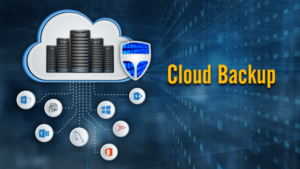Cloud Backup
A cloud backup service has many advantages over an on-premises backup system. Cloud backup requires no capital expenditure and only a subscription fee. It can be used for backup and recovery purposes regardless of whether or not a disaster strikes locally. Cloud backups are also protected from local disasters. Thus, your files are always safe and secure. Here are three benefits of cloud backups. Read on to learn more. And be sure to make the most of the benefits of cloud backup for your organization.
When evaluating the pros and cons of cloud backup, it’s important to consider the cost of backup and recovery in the long run. Make sure to calculate the cost of data storage and restoration over a five-year period. Cloud backup services also come with different pricing models, so make sure to review them carefully. A price-per-gigabyte-per-month pricing model is common, but check out for hidden fees and usage minimums. Some providers add transaction costs to their pricing.

A cloud backup service may include a physical backup site where customers can restore their data. It may also ship a complete storage array to a disaster recovery site. During a disaster, cloud backup services allow you to restore your data from any computer on the globe. Even if a disaster strikes, you can use a cloud backup service to restore your data directly from a disaster recovery site. This way, you won’t have to deal with the hassle of restoring huge volumes of data.
Three Benefits of Cloud Backup
Security is an important part of cloud backup. There are three major concerns to consider: availability, integrity, and confidentiality. Because most data will be transferred over public networks, data encryption is essential. Most cloud backup providers encrypt data at every step in the process. Depending on the provider, the keys used to encrypt data can be held by the user or by the cloud backup service itself. Secure Sockets Layer (SSL) and Transport Layer Security (TLS) protocols are common forms of network encryption.
Cloud backup also offers flexibility. Unlike on-premise backup, cloud backup services allow customers to customize the amount of data they backup and restore. Most cloud backup solutions offer per gigabyte or user plans, and most of them have a flat-rate plan. You can even configure your backups to be automatic, which is great for sites with many customers. All of these features make cloud backup an excellent choice for business owners who want to protect their data from disaster.
In addition to backing up data in the cloud, you can use a number of other services to sync your data with your computer. Many of these services allow users to create online folders and access files stored on their computers. This makes it much easier to share files and collaborate with others. Backblaze, Dropbox, and Google Drive are three examples of such services. The free tier of these services usually only allows users to store a few gigabytes of data, so they are useful for small-scale users.